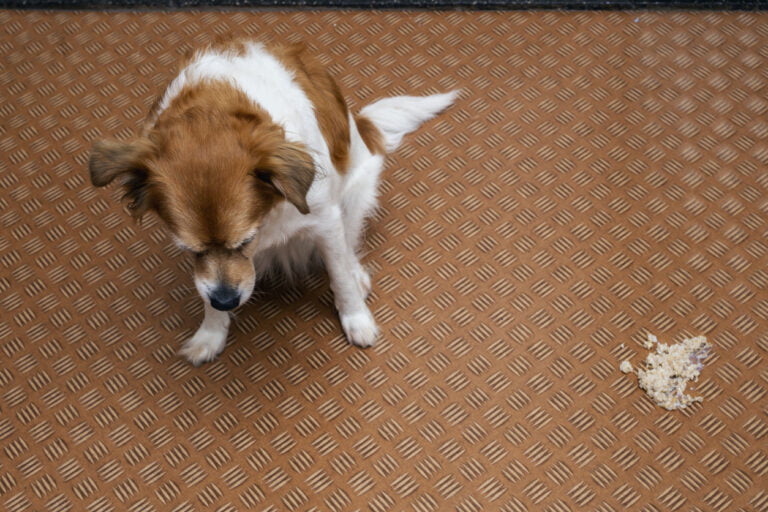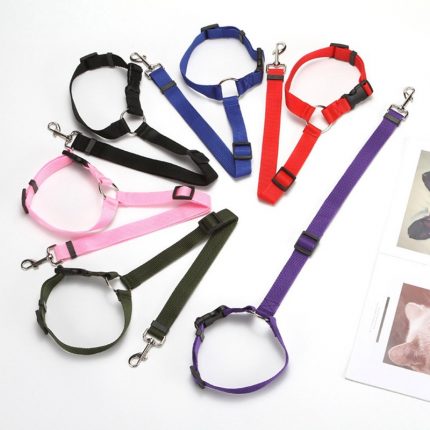Vomiting in puppies can be a cause for concern for any pet owner. It is not uncommon for puppies to experience occasional episodes of vomiting, but when it becomes frequent or persistent, it is important to understand the underlying causes and seek appropriate solutions. This article aims to shed light on the reasons why does my puppy vomit and provide practical recommendations to help alleviate the issue.
One of the most common reasons for puppy vomiting is dietary indiscretion. Puppies, in their curious and exploratory nature, often ingest foreign objects or consume food that doesn’t agree with their delicate digestive systems. This can lead to stomach irritation and subsequent vomiting. Additionally, sudden changes in diet or feeding schedule can also trigger vomiting in puppies as their bodies may struggle to adjust.
Understanding the Causes of why does my puppy vomit
Here are some of the reasons of why does my puppy vomit:
1. Dietary Indiscretion
One of the primary reasons why does my puppy vomit is dietary indiscretion. Puppies are naturally curious and tend to explore their surroundings with their mouths. This can lead to them ingesting objects that are not meant to be consumed, such as small toys, socks, or even plants. Additionally, puppies may also consume food that doesn’t agree with their delicate digestive systems, leading to stomach irritation and subsequent vomiting. It is important to puppy-proof your home and keep potentially harmful objects out of their reach.
2. Gastrointestinal Infections
Puppies, especially those with developing immune systems, are more susceptible to gastrointestinal infections. Bacterial or viral infections can inflame the stomach lining, causing vomiting as a defensive response. These infections can be contracted through contaminated food, water, or exposure to other infected animals. Parasitic infestations, such as worms or Giardia, can also lead to gastrointestinal upset and vomiting in puppies. Regular deworming and maintaining good hygiene can help prevent these infections.
3. Underlying Health Issues
In some cases, vomiting in puppies may be a symptom of underlying health issues. Conditions like pancreatitis, kidney disease, liver problems, or intestinal blockages can manifest through vomiting. If your puppy’s vomiting is persistent, accompanied by other concerning symptoms such as diarrhea, loss of appetite, lethargy, or weight loss, it is crucial to seek veterinary attention promptly. The veterinarian will perform a thorough examination and diagnostic tests to identify and address any potential health issues.
Practical Recommendations for Managing why does my puppy vomit
Here are some of the recommendations of why does my puppy vomit:
Consult a Veterinarian
If your puppy is vomiting frequently or persistently, it is important to consult a veterinarian. They will be able to provide a proper diagnosis and recommend the appropriate treatment plan. The vet will likely perform a physical examination, run diagnostic tests, and ask about the puppy’s medical history and recent dietary changes. Based on the findings, they can determine the underlying cause and provide the necessary medications or interventions.
Dietary Management
Ensuring that your puppy is on a balanced and age-appropriate diet is crucial to prevent vomiting. Avoid sudden changes in their food or feeding schedule, as this can upset their delicate digestive system. Opt for high-quality, easily digestible puppy food that meets their nutritional needs. If necessary, the vet may recommend a special diet to address any specific dietary sensitivities or allergies that could be contributing to the vomiting.
Maintain a Clean Environment
Keeping your puppy’s environment clean and free from potential hazards is essential. Remove any objects that could be ingested and cause stomach irritation or blockages. Regularly clean and disinfect their food and water bowls to prevent bacterial contamination. Providing a safe and clean living space will minimize the risk of your puppy ingesting harmful substances that could lead to vomiting.
Hydration
Proper hydration is vital for your puppy’s overall health. Make sure fresh water is readily available at all times. Dehydration can exacerbate vomiting and lead to further health complications. If your puppy is not drinking enough water, consult with your vet for guidance on ensuring proper hydration.
Actionable Recommendations for Managing why does my puppy vomit
1. Consult a Veterinarian
If your puppy is experiencing frequent or persistent vomiting, it is crucial to seek professional advice from a veterinarian. They will be able to conduct a thorough examination, run necessary tests, and provide a proper diagnosis. Follow their recommended treatment plan to address the underlying cause of the vomiting effectively.
2. Adjust the Diet
Ensure that your puppy is on a balanced and age-appropriate diet. Avoid sudden changes in their food or feeding schedule, as this can upset their digestive system. Opt for high-quality, easily digestible puppy food that meets their nutritional needs. If your puppy has specific dietary sensitivities or allergies, the vet may recommend a special diet to address these issues and reduce the chances of vomiting.
3. Monitor and Manage Hydration
Proper hydration is essential for your puppy’s overall health. Make sure fresh water is readily available at all times. Encourage your puppy to drink water regularly, especially after episodes of vomiting. If your puppy is not drinking enough water, consult with your vet for guidance on ensuring proper hydration, which may include techniques like adding water to their food or using a pet fountain to entice them to drink.
4. Puppy-Proof Your Home
Create a safe environment for your puppy by removing potential hazards. Puppies are naturally curious and may ingest objects that can cause stomach irritation or blockages. Keep small toys, socks, and other small items out of their reach. Additionally, be cautious of plants that may be toxic to dogs. By puppy-proofing your home, you can minimize the risk of your puppy ingesting harmful substances and reduce the chances of vomiting.
5. Maintain Good Hygiene and Parasite Control
Regularly clean and disinfect your puppy’s food and water bowls to prevent bacterial contamination. Proper hygiene practices help reduce the risk of gastrointestinal infections that can lead to vomiting. Additionally, follow a regular deworming schedule recommended by your vet to prevent parasitic infestations that can cause gastrointestinal upset and vomiting.
6. Observe and Monitor for Other Symptoms
Pay attention to other accompanying symptoms that may indicate underlying health issues. If your puppy experiences diarrhea, loss of appetite, lethargy, or weight loss along with vomiting, it is crucial to inform your veterinarian. These symptoms can provide valuable clues for an accurate diagnosis and appropriate treatment.
7. Follow Veterinary Recommendations
Once you have consulted with a veterinarian and received a diagnosis, it is important to follow their recommended treatment plan diligently. Administer any prescribed medications as directed and attend follow-up appointments as necessary. Regular communication with your vet will help monitor your puppy’s progress and make any necessary adjustments to the treatment plan.
Our featured products:
Remember, every puppy is unique, and the recommendations provided here are general guidelines. Always consult with a veterinarian for personalized advice tailored to your puppy’s specific needs. By taking proactive measures and implementing these recommendations, you can help manage and reduce episodes of vomiting in your beloved puppy, ensuring their health and well-being.
 Why does my puppy vomit – Conclusion
Why does my puppy vomit – Conclusion
While occasional vomiting in puppies may be normal, frequent or persistent episodes should not be ignored. Understanding the potential causes of why does my puppy vomit, seeking veterinary guidance, and implementing practical recommendations can help address and manage the issue effectively. By taking proactive measures, such as maintaining a balanced diet, ensuring a clean environment, and monitoring hydration, you can help alleviate vomiting in your puppy and ensure their well-being and comfort. Remember, always consult with a veterinarian for professional advice tailored to your puppy’s specific needs.
















 Why does my puppy vomit – Conclusion
Why does my puppy vomit – Conclusion